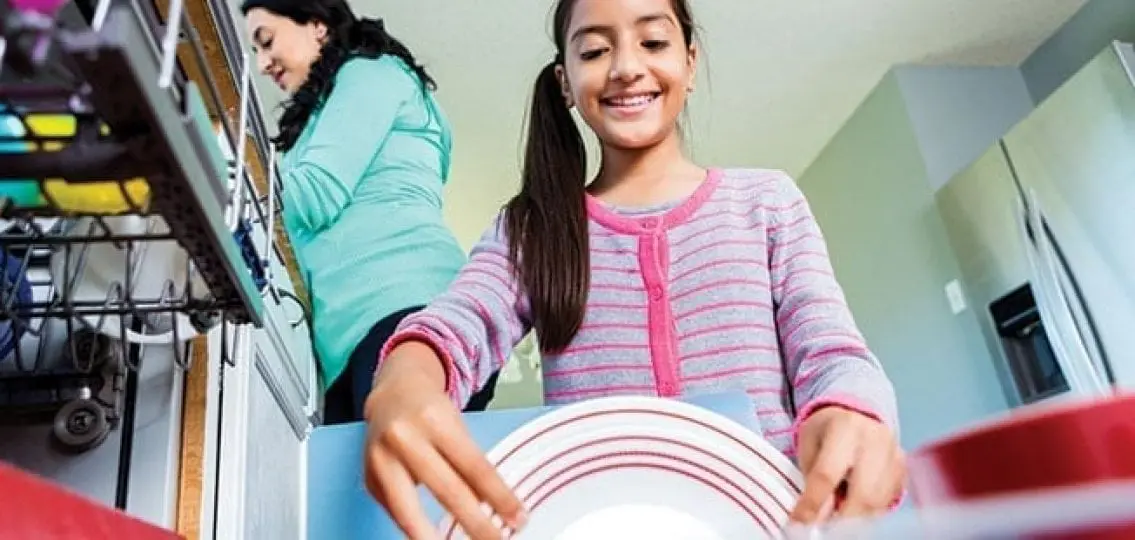The Benefits of Chores for Teenagers
You don’t need us to tell you how frustrating it can be when a teenager doesn’t take care of the basics … like leaving dirty dishes all over the house instead of putting them in the dishwasher or, gasp, cleaning them.
Here’s how one mom solved this problem. “I told him I was implementing a new service for a fee: maid service,” says this mom. Every time she cleaned up his dishes, she charged him $5. Since her son is responsible for earning his own spending money, he quickly cleaned up his act.
In general, experts say the best way to get teenagers to perform tasks that are important to you is not to yell and argue about it, but to calmly (and quietly) impose consequences when teenagers don’t follow through. Does your teenager never put the dishes in the dishwasher? You could try this mom’s idea — or come up with your own. But like this mom, it should be something that will motivate your teenager.
Still, sometimes it can feel like it’s easier to do the chores ourselves than get teenagers to do them. Here are some additional words of wisdom about the value of chores for teenagers from Dr. James Wellborn, an adolescent psychologist in Brentwood, Tennessee. Turns out, it’s much more than just a clean house!
Teenagers Doing Chores: What Are The Benefits?
Chores teach personal responsibility
“In life, when you make a mess, you are obligated to clean it up,” says Wellborn. “The most straightforward reason your teenager needs to do chores is to drive the point home that he is responsible for his actions in the world (and the messes he makes).
Chores teach teenagers the world doesn’t revolve around them
There are some things we all do because it is important to someone else (like, say, a spouse or college roommate). Chores provide your teenagers with a clear message that the world doesn’t revolve around them and they need to take other people’s feelings and sensibilities into consideration.
Chores teach organization
Unfortunately, life is filled with unpleasant but necessary tasks. Chores provide the chance for your teenagers to practice making time for these tasks in their schedule of otherwise fun or meaningful activities. This helps them learn how to plan, organize and prioritize.




